Orenetide (CAS No. 1124168-43-9) | Innovative Peptide for HSDD Research
原价为:$26.00。$18.00当前价格为:$18.00。
Orenetide (CAS No. 1124168-43-9) is a novel research peptide designed to restore sexual desire and related functions in women with hypoactive sexual desire disorder (HSDD). It serves as a valuable tool for exploring neuroendocrine regulation, central nervous system signaling, and therapeutic strategies in sexual health research.
描述
Product Description
Orenetide is a synthetic innovative peptide that has been developed as part of advanced biomedical research targeting female sexual health, specifically hypoactive sexual desire disorder (HSDD). HSDD is characterized by a persistent or recurrent deficiency in sexual desire that causes marked distress or interpersonal difficulty, affecting millions of women worldwide. Despite its prevalence, effective treatment strategies for HSDD remain limited, and peptides like Orenetide provide new hope in unraveling the biological mechanisms underlying this disorder.
Scientific Background
Sexual function in women is a multifaceted process, influenced by neuroendocrine pathways, neurotransmitters, hormonal fluctuations, and psychological states. Research has demonstrated that the central nervous system (CNS) plays a crucial role in initiating and maintaining sexual desire. Dysregulation of pathways involving dopamine, oxytocin, serotonin, and melanocortins has been linked to low libido.
Traditional therapeutic approaches for HSDD have included hormonal supplementation (e.g., testosterone or estrogen therapy), antidepressants with off-label benefits, and psychotherapeutic interventions. However, these strategies often come with limitations such as side effects, low efficacy, or inconsistent results.
Orenetide was specifically designed to modulate neuroendocrine signaling in a way that restores natural sexual responsiveness and improves related functions. It represents a new class of peptide-based candidates that may be better tolerated and more targeted than small-molecule drugs.
Unique Features of Orenetide
-
Peptide-based innovation: Harnessing the specificity of short amino acid sequences to target neuroendocrine systems.
-
Focus on HSDD research: Developed with the intent of addressing one of the least understood and most under-treated disorders in women’s sexual health.
-
Central activity: Designed to penetrate or influence CNS pathways, unlike peripheral-only hormonal treatments.
-
Translational potential: Provides a platform for designing next-generation therapeutics in sexual medicine.
Research Relevance
Orenetide is of significant interest for researchers in:
-
Behavioral neuroscience – exploring the relationship between peptide signaling and sexual motivation.
-
Endocrinology – studying the interaction between hormones and central desire-regulating pathways.
-
Pharmacology – testing peptide modulators for sexual health indications.
-
Psychiatry – addressing comorbid conditions such as depression and anxiety that often overlap with HSDD.
Product Specifications
| Parameter | Details |
|---|---|
| Product Name | Orenetide |
| CAS Number | 1124168-43-9 |
| Molecular Formula | To be determined (peptide sequence-based) |
| Molecular Weight | Peptide-dependent (approx. 2–4 kDa) |
| Synonyms | Orenetide peptide; HSDD peptide candidate |
| Sequence Length | Innovative proprietary sequence |
| Appearance | White to off-white lyophilized powder |
| Purity | ≥ 98% (HPLC confirmed) |
| Solubility | Water, PBS, and mild physiological buffers |
| Stability | Lyophilized form stable ≥ 24 months at -20°C |
| Storage Conditions | Store at -20°C; avoid repeated freeze-thaw cycles |
| GMP Compliance | Manufactured in GMP-certified facilities |
| Applications | Research on HSDD, neuroendocrine modulation, CNS activity, sexual health |
| Availability | Available in research and GMP-grade formats |
Specification Notes
-
Purity: ≥ 98% ensures reliable performance in sensitive assays.
-
Molecular range: As a small-to-medium peptide, Orenetide balances bioactivity with manufacturability.
-
Applications: Especially relevant in CNS studies, HSDD modeling, and pharmacological testing.
Mechanism of Action & Research Applications
Mechanism of Action
The precise mechanism of Orenetide is still under active investigation. However, current findings suggest that it modulates neuroendocrine pathways linked to sexual desire. Potential mechanisms include:
-
Dopaminergic modulation – enhancing dopamine signaling in brain regions associated with reward and motivation.
-
Oxytocin pathway influence – facilitating bonding, intimacy, and sexual responsiveness.
-
Serotonin regulation – balancing serotonin activity, which when excessive may suppress libido.
-
Melanocortin involvement – activating pathways shown to enhance sexual desire in animal and human studies.
-
Stress hormone interaction – counteracting the inhibitory role of cortisol and related stress mediators.
By targeting multiple systems simultaneously, Orenetide may restore balance in desire-regulating circuits that become impaired in HSDD.
Research Applications
-
HSDD Pathophysiology
Enables a deeper understanding of the neuroendocrine dysfunctions driving hypoactive sexual desire disorder. -
Therapeutic Development
Serves as a preclinical model compound for designing peptide-based drugs aimed at sexual health disorders. -
Neuroendocrine Studies
Helps map how CNS peptides influence behavior, motivation, and reward. -
Behavioral Models
Facilitates laboratory testing in animal models of sexual desire, arousal, and receptivity. -
Pharmacological Combinations
Useful in testing synergies between peptides and small molecules such as dopamine agonists. -
Female Sexual Medicine
Opens avenues for targeted therapies in an area with few available treatments.
Translational Potential
While Orenetide remains a research peptide, its development supports the emerging trend of peptide-based neurotherapeutics, which promise more targeted and better-tolerated interventions compared to conventional drugs.
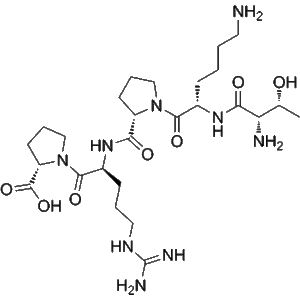
Side Effects (Research Context Only)
While Orenetide is not approved for clinical use, certain observations may guide research expectations:
-
Neurological Effects
As a CNS-active peptide, possible effects on mood, sleep, and cognition may be observed in preclinical models. -
Hormonal Interactions
Modulation of sex hormones or stress hormones could lead to secondary systemic effects. -
Immune Response
Being a synthetic peptide, immunogenicity and antibody formation are possible with repeated dosing. -
Behavioral Variability
Differences in response between individuals or species may complicate reproducibility. -
Overstimulation
Excessive activation of desire-related pathways may cause abnormal behavioral responses. -
Cardiovascular Considerations
Since dopamine and oxytocin also affect cardiovascular function, off-target effects on blood pressure or heart rate cannot be excluded. -
Storage-Linked Degradation
Improper handling may lead to breakdown products with altered activity.
These side effects are hypothetical and observed in controlled research models only.
Disclaimer
For laboratory research use only. Not for human or veterinary use.
Keywords
-
Orenetide
-
HSDD peptide
-
Hypoactive sexual desire disorder research peptide
-
Sexual function peptide research
-
CNS peptide for sexual health
-
Neuroendocrine peptide drug candidate
-
Female libido research peptide
-
Innovative peptide for sexual medicine
-
Research-use-only peptide
其他信息
| 重量 | 0.9 公斤 |
|---|---|
| 尺寸 | 53 × 36 × 53 厘米 |
A novel peptide developed for research into female hypoactive sexual desire disorder (HSDD).
CAS No. 1124168-43-9.
Neuroendocrine pathways regulating sexual desire.
No, it is strictly for laboratory research use.
Approx. 2–4 kDa, depending on sequence.
≥ 98% (HPLC).
Lyophilized at -20°C, avoid moisture and light.
Yes, it is particularly relevant for neuroendocrine and behavioral neuroscience research.
Hypoactive sexual desire disorder (HSDD).
Sexual health research, peptide drug development, and neuroendocrine pathway studies.

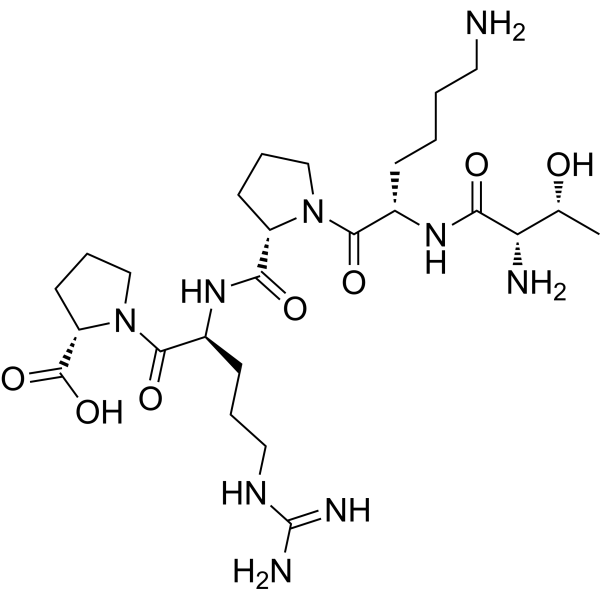


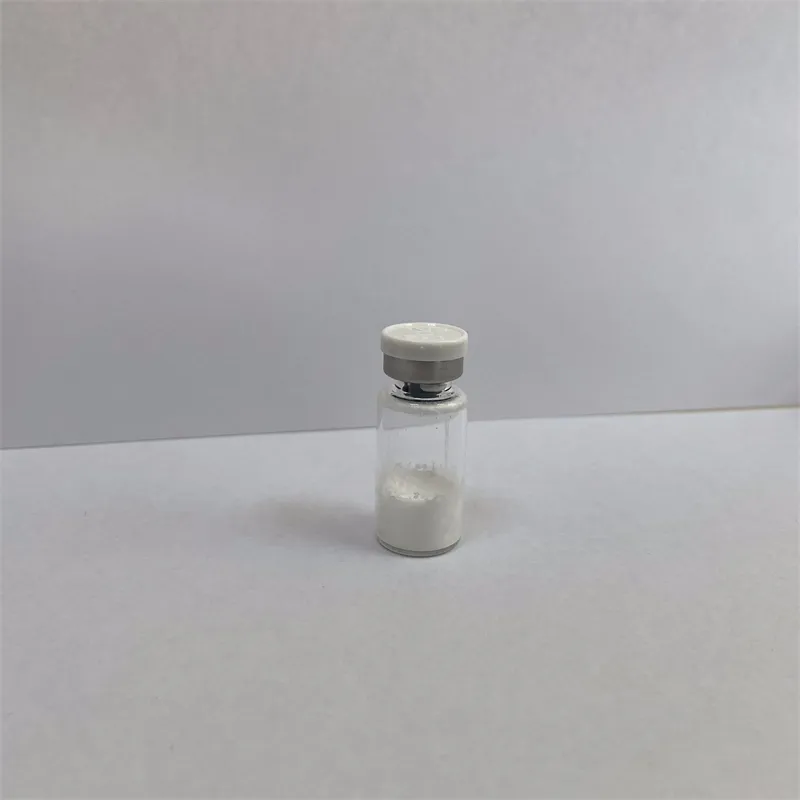
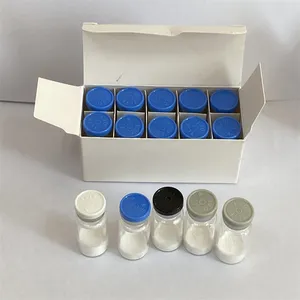

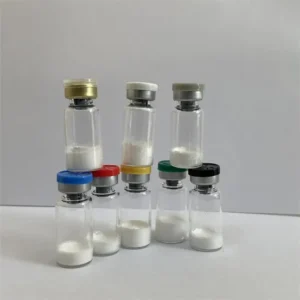



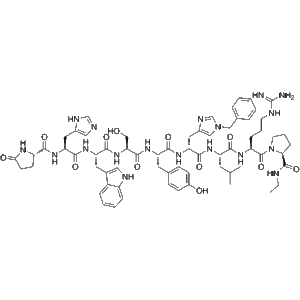
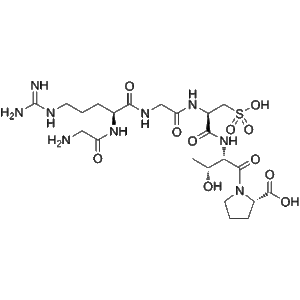
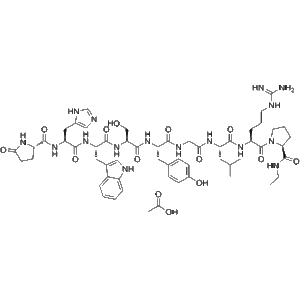

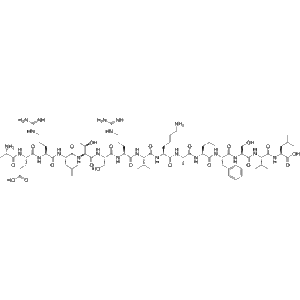
评价
目前还没有评价